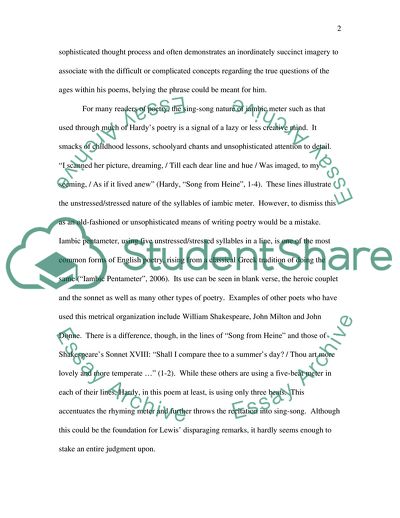Cite this document
(Hardy: A Poet of Awkward Innocence Literature review, n.d.)
Hardy: A Poet of Awkward Innocence Literature review. https://studentshare.org/literature/1703611-fr-lewis-described-hardy-as-a-poet-of-innocent-awkwardness-how-adequate-is-this-answer-with-close-reference-to-his-poems
Hardy: A Poet of Awkward Innocence Literature review. https://studentshare.org/literature/1703611-fr-lewis-described-hardy-as-a-poet-of-innocent-awkwardness-how-adequate-is-this-answer-with-close-reference-to-his-poems
(Hardy: A Poet of Awkward Innocence Literature Review)
Hardy: A Poet of Awkward Innocence Literature Review. https://studentshare.org/literature/1703611-fr-lewis-described-hardy-as-a-poet-of-innocent-awkwardness-how-adequate-is-this-answer-with-close-reference-to-his-poems.
Hardy: A Poet of Awkward Innocence Literature Review. https://studentshare.org/literature/1703611-fr-lewis-described-hardy-as-a-poet-of-innocent-awkwardness-how-adequate-is-this-answer-with-close-reference-to-his-poems.
“Hardy: A Poet of Awkward Innocence Literature Review”. https://studentshare.org/literature/1703611-fr-lewis-described-hardy-as-a-poet-of-innocent-awkwardness-how-adequate-is-this-answer-with-close-reference-to-his-poems.


